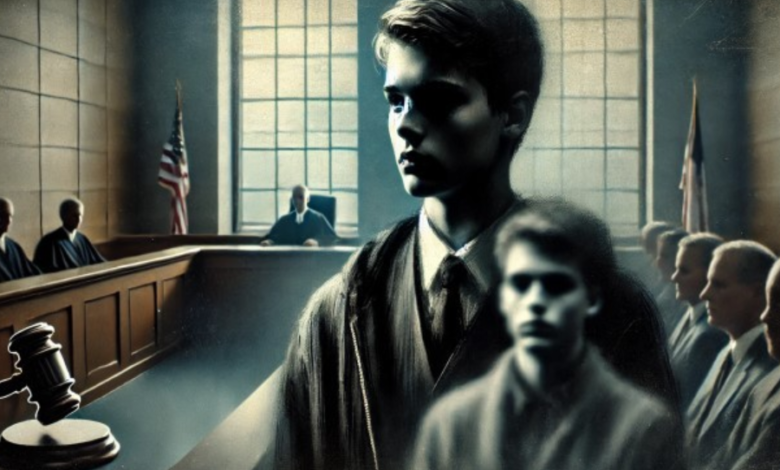Jacob Widman New York: A Troubled Journey From Privilege To Prison

Introduction:
The tale of jacob widman new york often dubbed the “New York Murderer,” is a story marked by contradiction. Raised in a well-off family with access to elite educational and social privileges, few could have foreseen his tragic descent into criminality at the age of 16. Widman’s life took a devastating turn in 1986 when he murdered his summer camp roommate, Eric Kane, in a seemingly senseless and unprovoked act. This article delves into the psychological, legal, and social dimensions of Widman’s life, exploring how a young man blessed with so many advantages spiraled into darkness.
Early Life and Background
jacob widman new york was born into a wealthy intellectual family in New York City. His father, John Edgar Widman, was a renowned author whose work often examined themes of race, violence, and the American experience. Growing up, Jacob was surrounded by an environment that emphasized education, culture, and social responsibility. Despite this privileged upbringing, Jacob battled internal struggles that tragically manifested in one violent night that forever changed his life.
The Crime that Shook New York
In 1986, jacob widman new york, then 16, was attending a summer camp in Arizona, a place meant to foster growth and self-discovery. But it was there that he committed the crime that would alter his future. In the dead of night, while his roommate Eric Kane slept, Jacob stabbed him twice in the chest, ending his life. The senseless act shocked the camp and made national headlines, leaving many to wonder how a boy with such privilege could commit such a horrifying act.
Psychological Struggles and the Question of Motive
One of the most perplexing aspects of jacob widman new york’s case was the absence of a clear motive. Throughout the investigation and trial, no definitive reason for the murder emerged. Speculations arose that Jacob’s actions were tied to deep-seated psychological issues, perhaps compounded by the expectations of his upbringing.
Those who knew Jacob described him as quiet and introspective, often withdrawn or detached from those around him. Some have suggested that his father’s career, which delved into the dark side of humanity, may have added complexity to Jacob’s inner world. However, these theories remain speculative, and the true reasons behind the murder remain a mystery.
The Legal Battle: Conviction, Parole, and Reincarceration
Convicted of murder, Jacob was sentenced to life in prison with the possibility of parole after 25 years. He spent three decades behind bars, during which he focused on rehabilitation—earning degrees and engaging in therapy. In 2016, after 30 years, he was granted parole under strict supervision.
Yet, his time outside prison was short-lived. Only a few months after his release, his parole was revoked for failing to schedule a doctor’s appointment on time—a seemingly trivial infraction. His reincarceration sparked debate over the justice system’s fairness, particularly concerning parolees. Critics argue that the punishment was disproportionate to the violation and that Jacob’s reincarceration was unjust.
Mental Health and Incarceration: A Life of Struggle
During his time in prison, jacob widman new york faced numerous mental health challenges, including depression, anxiety, and anger. These issues were exacerbated by the harsh conditions of incarceration. Despite his struggles, Jacob made efforts to improve his mental health by participating in therapy and educational programs.
The revocation of his parole and return to prison added further emotional strain. Jacob has spoken publicly about the anguish of being sent back behind bars after a brief taste of freedom, describing feelings of anger, frustration, and hopelessness. His case highlights broader concerns about the treatment of mental health issues within the prison system, especially for individuals serving long-term sentences.
The Ongoing Legal Battle
Jacob’s legal team continues to fight against his reincarceration, arguing that his parole revocation was an unjust overreaction. They assert that he was progressing well on parole and that the technical violation was a minor, unintended error that did not merit such severe consequences.
Despite these arguments, the Arizona Board of Executive Clemency has upheld its decision, citing concerns about Jacob’s mental health and the possible danger he might pose. The victim’s family has been vocal in their opposition to his release, maintaining that Jacob should remain imprisoned for life.
Public Perception and Media Coverage
jacob widman new york’s case has drawn considerable media attention, with many debating the fairness of his treatment. Some view him as a tragic figure—a man who made a grievous mistake as a teenager and has paid for it ever since. Others see him as a continued threat, believing he should never have been released.
Media coverage has often focused on the sensational aspects of the case—Widman’s privileged background, the shocking murder, and the dramatic legal battles. However, beneath these headlines lies a deeper conversation about mental health, justice, and the complexities of rehabilitation for individuals who have committed serious crimes.
The Broader Implications
Widman’s case raises important questions about the U.S. criminal justice system, particularly =in terms of handling parole and the treatment of those with mental health issues. It underscores the difficulties faced by former inmates as they attempt to reintegrate into society after serving long sentences, and the challenges in ensuring justice is meted out fairly and proportionately.
Moreover, the case calls for a more compassionate, individualized approach to parole, taking into account the progress each person has made and their unique circumstances. As Jacob’s legal battle continues, it serves as a potential test case for how the justice system balances public safety with the rights of rehabilitated individuals.
Conclusion
The story of jacob widman new york is complex and tragic, filled with unanswered questions and difficult decisions. As his legal team fights for his release, his case stands as a poignant reminder of the challenges faced by those seeking redemption after incarceration. Whether or not Widman will ultimately regain his freedom remains to be seen, but his journey will undoubtedly continue to spark debates on justice, rehabilitation, and redemption in America’s criminal justice system.




